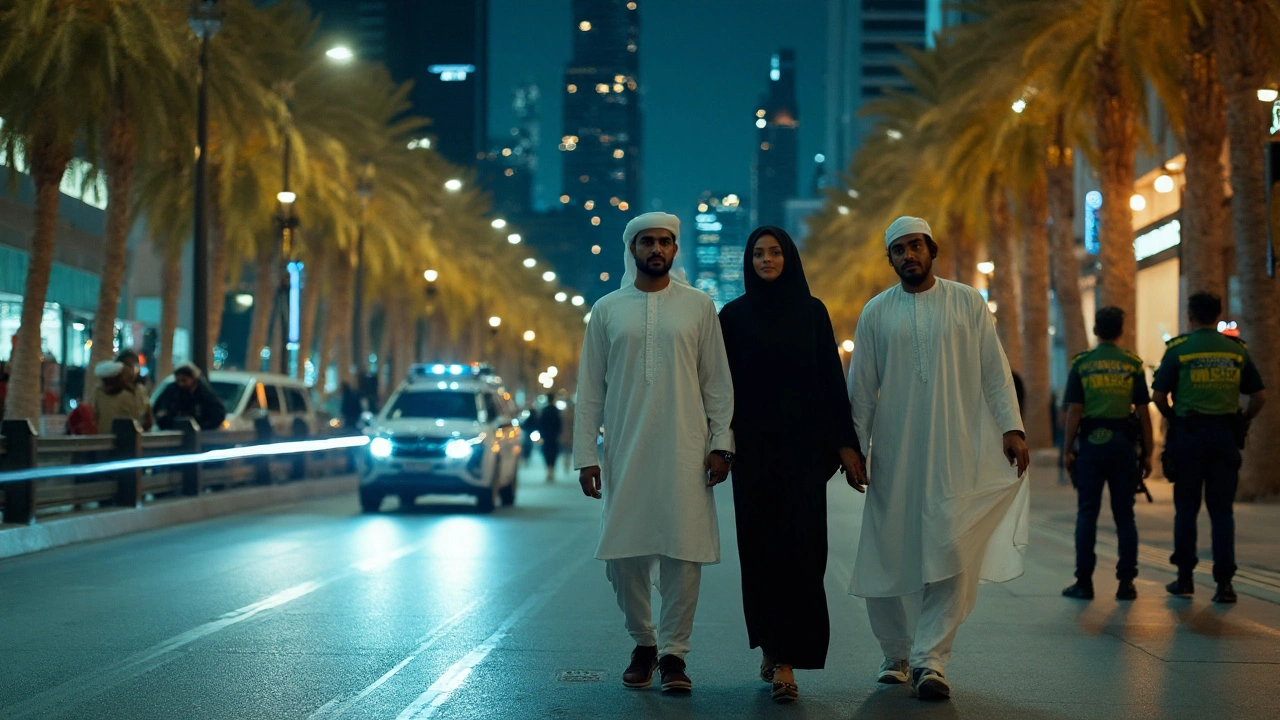Travel Safety in the UAE: What Every Visitor Should Know
Planning a trip to Dubai or any part of the UAE? The glamour and skyscrapers draw crowds, but the real fun comes when you feel safe and confident. Below are the top things you should do to keep your trip smooth, from respecting local laws to handling everyday situations.
Know the Rules Before You Arrive
The UAE has strict public decency laws. Dress modestly in public places – think shirts with sleeves and shorts or skirts that cover the knee. Bathing suits are fine at the beach or pool, but not on city streets. Public displays of affection can land you a fine, especially during Ramadan, so keep hugs and kisses low‑key.
Alcohol is only allowed in licensed venues like hotel bars and private clubs. Drinking in public or being drunk in a non‑licensed area is illegal. If you’re buying alcohol at a store, you’ll need a special permit and be over 21.
Drug laws are zero‑tolerance. Even tiny amounts of cannabis can result in severe penalties. Bring any prescription medication in its original packaging and a doctor’s note; avoid anything that looks like a controlled substance.
Move Around Safely
Public transport is clean and well‑maintained. The Metro, trams, and buses run on schedule and are a great way to avoid traffic. Keep your ticket handy and watch your belongings, especially during rush hour. Taxis are safe, but always use the official app or the meter; avoid unmarked cars.
If you rent a car, know that speed limits are strictly enforced with cameras. Seat belts are mandatory for all passengers, and using a mobile phone while driving without a hands‑free kit can earn you a fine. Parking can be pricey in central areas, so look for public lots with clear signage.
For night outings, stick to well‑lit areas and reputable venues. The downtown and Marina districts are usually busy, but if you’re heading to more remote spots, let someone know your plans.
Health and Emergencies
The UAE’s healthcare is top‑notch, but it can be expensive if you’re not covered. Travel insurance that includes medical evacuation is a smart move. Pharmacies are plentiful; you can find over‑the‑counter meds in malls and neighbourhood stores.
In an emergency, dial 999 for police, 998 for ambulance, and 997 for fire. Most operators speak English. Keep a copy of your passport and visa in a safe place, and store a digital backup on your phone.
Stay hydrated – the desert heat can hit fast. Use sunscreen, wear a hat, and limit outdoor activity during the hottest part of the day (11 am–4 pm). If you feel unwell, head to a mall or café with air‑conditioning; they’re often the easiest places to rest.
Money, Scams, and Common Sense
Credit cards are accepted everywhere, but cash is handy for small markets and taxis. ATMs dispense AED only, and there’s a small fee for foreign cards. Avoid exchanging money on the street; use banks or official exchange offices.
Scams are rare but can happen in tourist hotspots. If someone offers a “too good to be true” deal on tours or tickets, walk away and check official sites. Never give out your card details to strangers, and cover your PIN when you type it.
For LGBTQ travelers, private same‑sex relationships are not illegal, but public displays can attract unwanted attention or legal trouble. Keep affection discreet and stay in venues known to be LGBT‑friendly.
Finally, stay connected. Buy a local SIM card at the airport – they’re cheap and give you reliable data. Having internet access makes navigation, translation, and emergency calls much easier.
Enjoy the stunning skyline, desert safaris, and world‑class dining, but always keep these safety basics in mind. A little awareness goes a long way toward turning a great trip into an unforgettable, hassle‑free adventure.
-
 VIEW POST
VIEW POSTWhat Is the Crime Rate in Dubai? 2025 Safety Stats, Comparisons, and Travel Tips
Sep, 20 2025|0 CommentsIs Dubai safe in 2025? Get clear crime rates, comparisons with NYC/London/Sydney, what the stats miss, local law pitfalls, and no-nonsense safety steps.